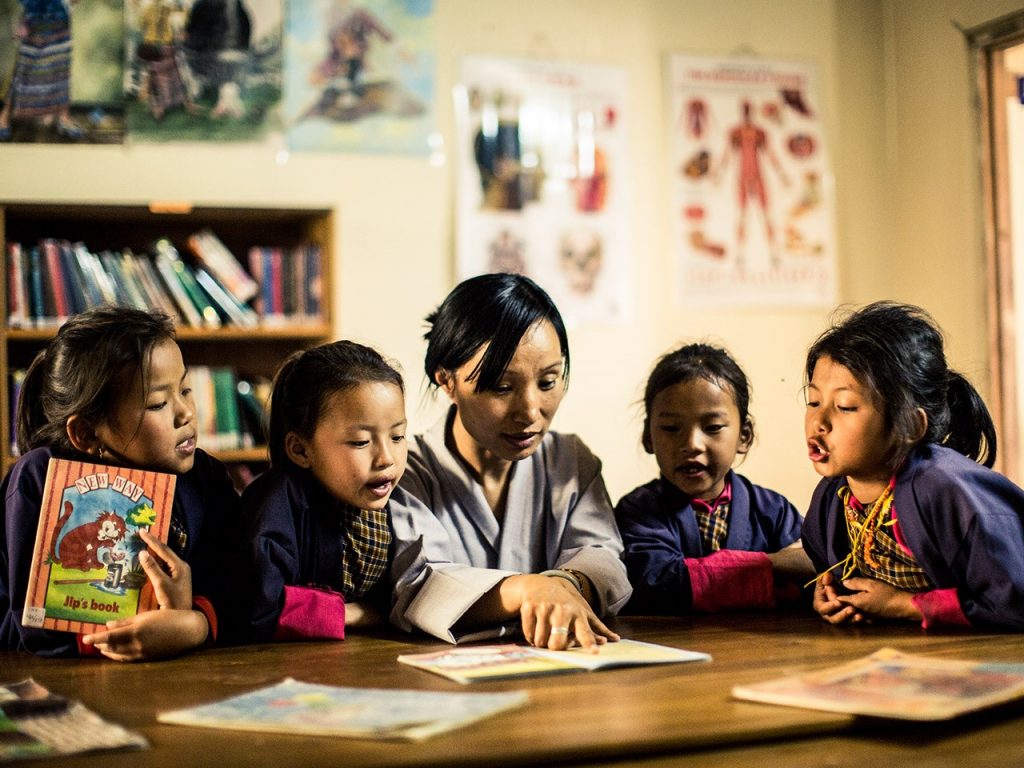
Lisa Krolak on the critical role community libraries play in promoting literacy development and lifelong learning
All over the world, libraries serve as proactive community and learning spaces that directly address the needs of children, youth and adults. They are constantly evolving and responding to social, cultural, economic and political changes in their environment. Community libraries, in particular, have demonstrated great potential in supporting literacy development and lifelong learning through diverse services and successful outreach activities. But what is it that make community libraries so effective?
Community libraries are established, owned and managed by and for a specific community, clearly based on community needs. They represent one of many alternative library models that have emerged since the 1970s. In comparison to public libraries, community libraries are often small and usually not supported by government funds. They do not primarily target the mostly literate, urban populations, but rather develop diverse ways to provide various learning opportunities to marginalized populations. This is done not only by providing access to reading materials, but also by offering literacy training and linking literacy activities to practical livelihood concerns.
The Adult Learning Documentation and Information Network (ALADIN), coordinated by the UIL Library since 1997, provides a space in which community libraries can share experience and learn from each other, enabling them to strengthen and harness their potential. The 100-plus libraries and information services which belong to the network include several excellent examples of community libraries that are actively enhancing literacy developments and lifelong learning.
The Uganda Rural Literacy and Community Development Association (URLCODA), for example, coordinates 16 community libraries that are part of the Uganda Community Library Association. It takes an integrated approach to literacy and lifelong learning using community libraries in order to support people to be able to address contemporary social and economic issues, including low literacy levels and a poor reading culture. Throughout the last 20 years, the URLCODA libraries have become places where rural communities come together to discuss and learn with and from one another. They are places of intergenerational learning, digital skills development, promotion of cultural heritage, social inclusion, and environmental and physical education, as well as health promotion.
READ Nepal has set up 68 community libraries (READ centres) since 1991, READ India has set up 27 community libraries since 2007, and READ Bhutan has set up nine community libraries since 2010 (see video below). Over the years, READ centres have successfully evolved from traditional libraries into community development centres with a strong focus on social empowerment, economic development and lifelong learning, based on a model that is needs-based, community-owned and sustainable. They address their communities’ severe socio-economic challenges, including poverty, poor access to quality education, gender inequality, youth issues and underdevelopment. Each READ Centre runs an income-generating project to guarantee their financial sustainability. You can find out more about them here.
CODE-Ethiopia (CE) has worked in library development in rural areas of Ethiopia since 1994. CE has so far established 97 community libraries. CODE-Ethiopia’s success lies in the strength of community involvement and the value attached to community libraries by their users. The NGO works to foster a culture of reading and writing, supporting authors, publishers, community libraries, teachers and readers. It develops authentic reading materials that consider local culture, and has published hundreds of thousands of books, including more than 500 unique titles in six national languages.
To give further visibility to good practice, ALADIN supports academic research by inviting practitioners to the UIL Library to document their experiences. As a result, ALADIN research scholar Sanjana Shrestha (READ Nepal) published an article on The potential of community libraries in supporting literate environments and sustaining literacy skills and, in 2018, ALADIN research scholar Willy Ngaka (URLCODA) drafted an article on Community Libraries, Literacy Development and Lifelong Learning in Rural Africa: Experiences from an NGO in Uganda.
These examples show that community libraries offer creative and innovative approaches to support literacy development and lifelong learning. They understand the needs of the local community because they are an active part of it. They represent safe, accessible local spaces in which people can learn, share and discuss, and can be a vital lifeline for people living in disadvantaged or vulnerable circumstances. But they also need support; not only the kind of support offered by ALADIN through networking and sharing of good practice but also in terms of resources. When governments, NGOs and local communities help to ensure that libraries are continuously able to provide access to reading materials and literacy activities, they can make a significant contribution to creating literate environments and, thus, to the fulfilment of the Sustainable Development Goals.
Lisa Krolak is Head of the UIL Library
